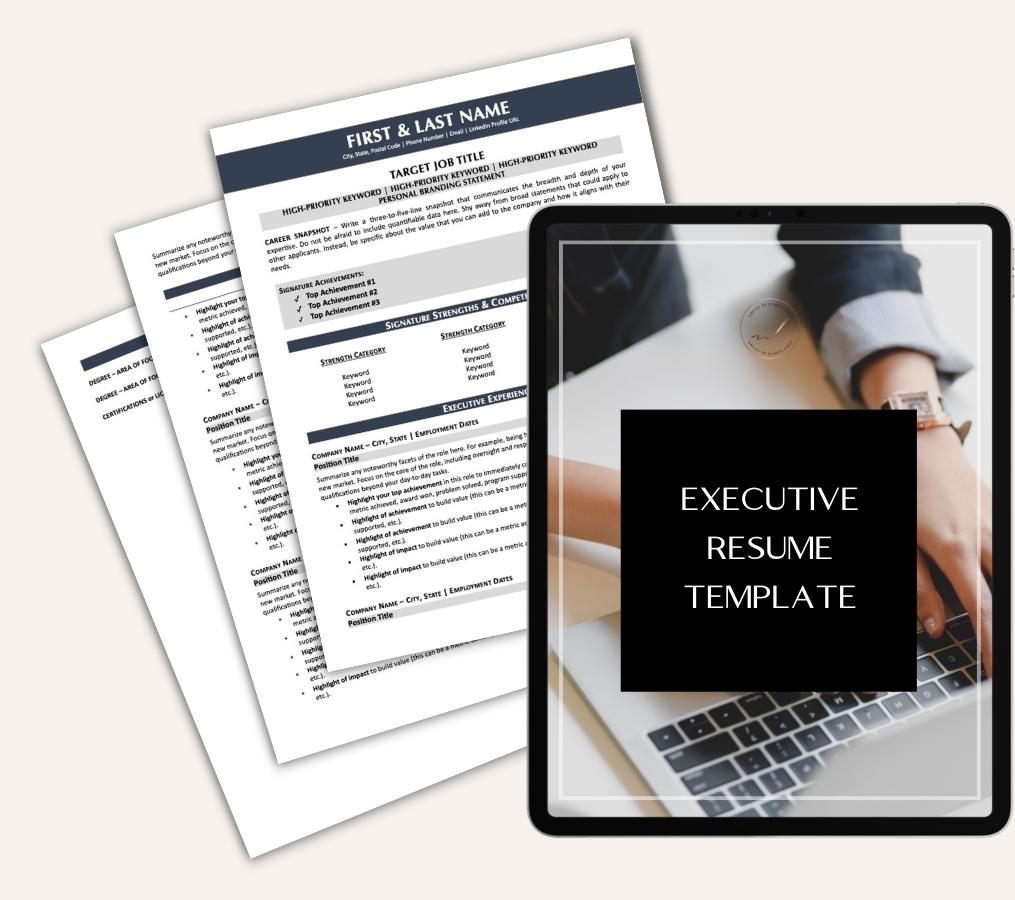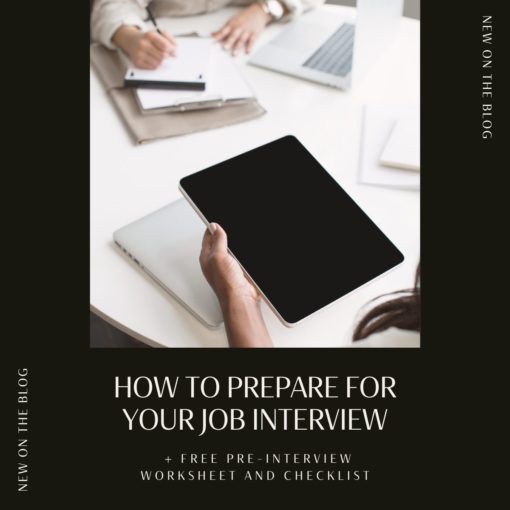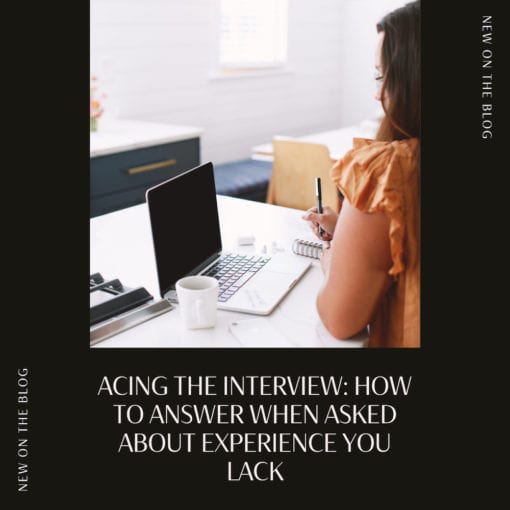Doing Research to Ace an Interview
When you go into an interview, you probably feel pretty confident that you know your own job history and skill set. Of course, you’re nervous—everybody is—but you at least have the information about yourself at your fingertips. But what’s a way to help ease some of your nerves even more? Build up your confidence about your knowledge of the company you are interviewing with.
In today’s world, with the internet and social media, there really is no excuse for not doing research before an interview. And trust me, hiring managers can tell if you have just blindly applied and not done any research at all into the company. Even spending an hour or two before an interview can pay off big time for you. Let’s take a look at how you can maximize your research to help you ace your interview.
Do I Need to Know Everything?
Nobody can learn everything about a company before they head into an interview, nor should you. Instead, your goal should be to have an understanding of the company’s culture and goals in a way that can help you frame your interview answers and ask the right questions. If you’re applying to a department within a larger company, your focus should be on learning what you can about that department—if you’re applying for a marketing job, you don’t really need to know what the culture is like over in accounting unless it’s a small company where your daily work will regularly overlap.
To figure out what you should focus your research on, take a close look at the job description. Ask yourself what responsibilities you’ll have if you’re hired that you don’t fully understand as they are laid out in the job description. Then, try to figure out where those responsibilities might fully fit in based on the company’s goals and culture. You should also ask yourself a series of questions including:
● What are the company’s long- and short-term goals? Either companywide or for the position I’m interviewing for?
● Does the company have a specific mission? E.g., are they a “green” company, do they hire mostly veterans, are they involved in local charities, do they support local schools or youth sports teams?
● What stage is the company at? Are they a start-up, a multigenerational family business, or have they recently merged with another company?
● Who are some of the company’s major competitors?
● Has the company been featured in any recent news coverage? What for?
By doing the research on these questions, you’ll have an excellent knowledge base about the company. You’ll be better prepared to tackle tougher interview questions, like why you want to work for this company in particular, or even what your weaknesses are. You’ll be able to formulate answers to questions like this with information about the company in the back of your mind, building your confidence and strengthening your answers overall.
Where Should I Do My Research?
You can’t just call up a company and say, “Hi, I’m applying for the open job. Can you please share with me all the dirt on your company along with what hiring managers like to hear the most?” Thankfully, though, researching companies has never been easier.
There’s the company’s website, LinkedIn, Facebook, Twitter, and even company reviews on sites like Indeed. Each of these platforms will have a different audience and a different purpose, so be aware of that when you are looking for answers. You might get more honest information about the job you are applying for by finding the person who currently holds it on LinkedIn and reading their profile than you will from the job posting. However, you also need to consider that they might be shifting or adapting the position to take on new responsibilities or work toward different goals.
The company’s website is where you’re most likely to find information about their overall goals, mission, and brand. It might be tempting to look around the website, feel like you’ve got the company’s history down, and think your research is done. However, you need to keep going.
Companies don’t update their website every day, or even every month. They are much more likely to be keeping up with their social media pages at least weekly. It’s here, along with a Google News search, that you are likely to find news stories they have been mentioned in recently. Social media accounts can also give you a great sense of the company’s overall branding and mission beyond just what their website says. Do they have a sense of humor? Are they speaking to a local audience, a national audience, or an international audience? Are they engaged with the community or promoting any causes?
You can also turn to offline sources for information. If you have a connection at the company, either someone currently employed there or recently employed there, they may be a wealth of information. Both of you, however, need to trust that none of the conversation makes it back to the hiring manager or anyone else at the company. Unless, of course, the person you’re speaking to wants to put in a good word for you and was impressed by the conversation! Their manager, however, might not be so happy to learn the person was speaking openly about the company to an outside person, so you should never cite someone during your interview.
So How Do I Use My Research?
You’ve asked your questions, you’ve gathered your information, and now it’s time to head into the interview. Do you just fill up all the pauses in the conversation with facts you’ve learned about the company? Absolutely not.
The best way to use your research is to prepare your answers better for the interview. You might have been planning to answer a question about why you wanted to work at the company with a generic, “Well, I like what you’re doing and want to help this company succeed by using my analytical skills.” Now, after doing research, you can reframe it to be, “While I’ve been job searching, the fact that you have a national market that could easily expand internationally with a carefully planned expansion offers interesting challenges and exciting opportunities for someone who loves data and market analysis as much as I do!”
By researching, you can also better judge which of your skills and experiences you should emphasize during the interview. Your resume and cover letter had limited space, and your interview is the time to really explain why you’re a good fit. Take what you’ve learned about the company, and pick out the two to three accomplishments or experiences that are the best match. Then, during the interview, keep coming back to these if you find yourself struggling for an answer. Even if you aren’t struggling for an answer, really bringing home the point about this experience that is well-aligned with the job position will help strengthen you as a candidate.
One of the harder things many people find about interviews is asking questions about the company without seeming like they don’t k]=now anything about the company. As you research, jot down gaps in what’s on the website or Facebook, and any other questions that come to mind. Use these notes to craft two to three questions that you can use and use well during the interview.
Conclusion
Interviews can be nerve-wracking enough, and job searches can certainly be difficult. By doing research on the company before you step into an interview, you will make the interview easier on yourself and you’ll also make it more likely that your job search will end sooner and successfully.
Doesn’t that sound like it’s worth the extra hour or two?
Are you tired of your resume being rejected by applicant tracking systems? I know how frustrating it is to submit your resume and receive no response. I hate seeing qualified people never breakthrough the screening process. It shouldn’t be that way. That’s why I created this guide and I encourage you to download the FREE PDF so you can start seeing better resume response rates!
Share this post:

About the author
Jessica Hernandez, President, CEO & Founder of Great Resumes Fast
Hi, I’m Jessica. I started this company back in 2008 after more than a decade directing hiring practices at Fortune 500 companies.
What started as a side hustle (before that was even a word!) helping friends of friends with their resumes has now grown into a company that serves hundreds of happy clients a year. But the personal touch? I’ve kept that.
You might have seen me featured as a resume expert in publications like Forbes, Fast Company, and Fortune. And in 2020, I was honored to be named as a LinkedIn Top Voice of the year!
I’m so glad you’re here, and I can’t wait to help you find your next perfect-fit position!
3 Comments
Leave a Comment
Improve Your Resume: Download Your Free Executive Resume Template Today
Are you struggling to create an executive resume that will impress employers? Download this free executive resume template and receive a series of 10 emails with expert guidance on how to write resume content that resonates with employers so you get more interviews.
It's everything you need to stand out, make an impression, and accelerate your job search.









[…] post Doing Research to Ace an Interview appeared first on Blog | Great Resumes […]
[…] December 6, 2018December 6, 2018 By job-search-bot This post was originally published on this […]
Don’t forget the Reference Librarian at your local public library can connect you with resources that make Google and the company website look rather pathetic. Libraries often have subscriptions to services that can provide a great deal more detail, as well as publications. I’ve seen people who struggled for months, suddenly start landing when they exploited the resources at the library before they interviewed. BTW – Don’t forget to research before the Phone Screen Interview. Otherwise, you might never get to the face-to-face one.